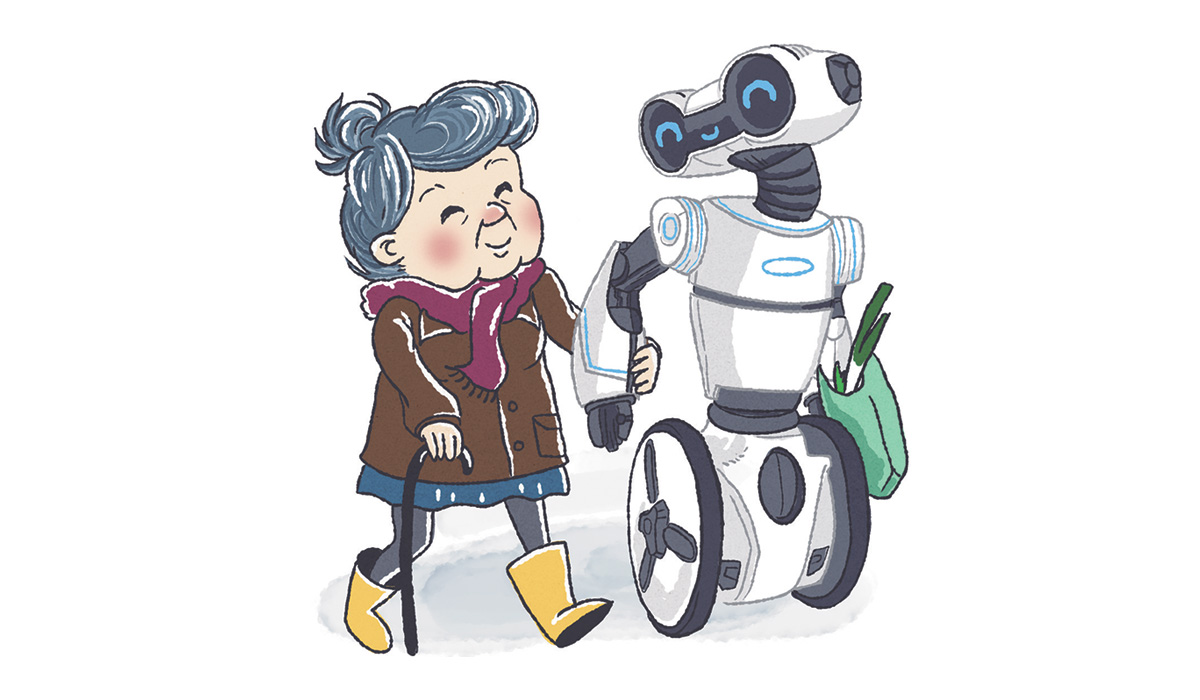
When most people hear the words “the future,” one image springs to mind: A large, grey city with weird-shaped buildings, hovercraft zooming about, robot maids gliding everywhere and billboards advertising the latest technology. But is this what we should be working toward?
I ask this because in Japan, one of the most technologically advanced countries in the world, these images are swiftly becoming a reality. Japan’s technological advancements are world-famous, being the birthplace of ASIMO and the creator of all types of futuristic cars. Residents often come into contact with robots, especially of the cute variety—more than I’m guessing they would elsewhere in the world. Here, one can really see this image of the “future” coming to life.
But let’s consider how practical this new reality is in the world we live in. The UN’s eight millennium development goals are miles away from eradicating poverty, achieving universal primary education, empowering women, reducing child mortality, improving maternal health, combating disease and ensuring environmental sustainability. Adorableness aside, I have trouble imagining the little Tokyo Tower tour guide robot helping.
Should we really be worrying about handy maids to help with the dishes when there are still those without food or water? Personally, I find oh-so-fabulous smartphones hard to stomach when resources spent “upgrading” to the latest-and-greatest could instead be helping someone in need. If we think about how much time, energy and money we put into contributing to mass consumerism and technology for solving our first-world problems, we’d all be surprised about how much of that we could send to a worthier cause while still being able to live comfortably.
There’s also environmental sustainability to consider. Cast your mind back to that “big, grey city” image. Is there a single tree in that mental conjuring—or any green foliage at all? We could go on about the impending doom of global warming—and the fact is, it’s a big problem. Plus, there’s the issue of animal and plant species being displaced or going extinct at the hands of humans. I don’t know if robots can actively solve these problems.
However, there’s some positive new technologies out there—ones that save lives, from scanning devices to more vaccinations that treat previously incurable diseases. There’s also new technology that assists scientists in studying animal patterns and global warming. Solar- and wind-powered technology is also a fantastic development, which we need to start employing in developing countries in lieu of high-carbon-emitting electricity. If we just forsake all technology, the positive aspects wouldn’t exist either.
There’s also an endless list of technology that‘s both a blessing and a curse: Airplanes and cars, for example, make travel and postage systems more efficient but emit thousands of tons of greenhouse gasses into the atmosphere every year. Even genetically modified vegetables have their positives, according to the scientists that make them—though I always make sure I go organic.
These things need to be improved upon until their negatives are eliminated, and then must replace their faulty predecessors. Happily, this has already started happening, with items like Nissan’s new zero-emission car on the market. There are scientists that, somehow, organically and genetically modify wheat—of which I’m still skeptical. Hopefully soon these technologies will be all blessing and no curse.
A balance has to be struck. We need to keep advancing these positive technologies, but hold off on the hover chairs and fab-o-matics until we all get three square meals a day and zero carbon emission. Then maybe we’ll wonder: Novelty aside, do we even need hover chairs?
Once the elephant population is back into the millions, maybe we can splurge a bit and get ourselves that latest smartphone—which by then would hopefully be produced in an ethical and environmentally sustainable factory.
It’s funny: Once humans realize the true value of doing stuff with their own hands, they can move on to robots. Until then, we can wash our own dishes.





